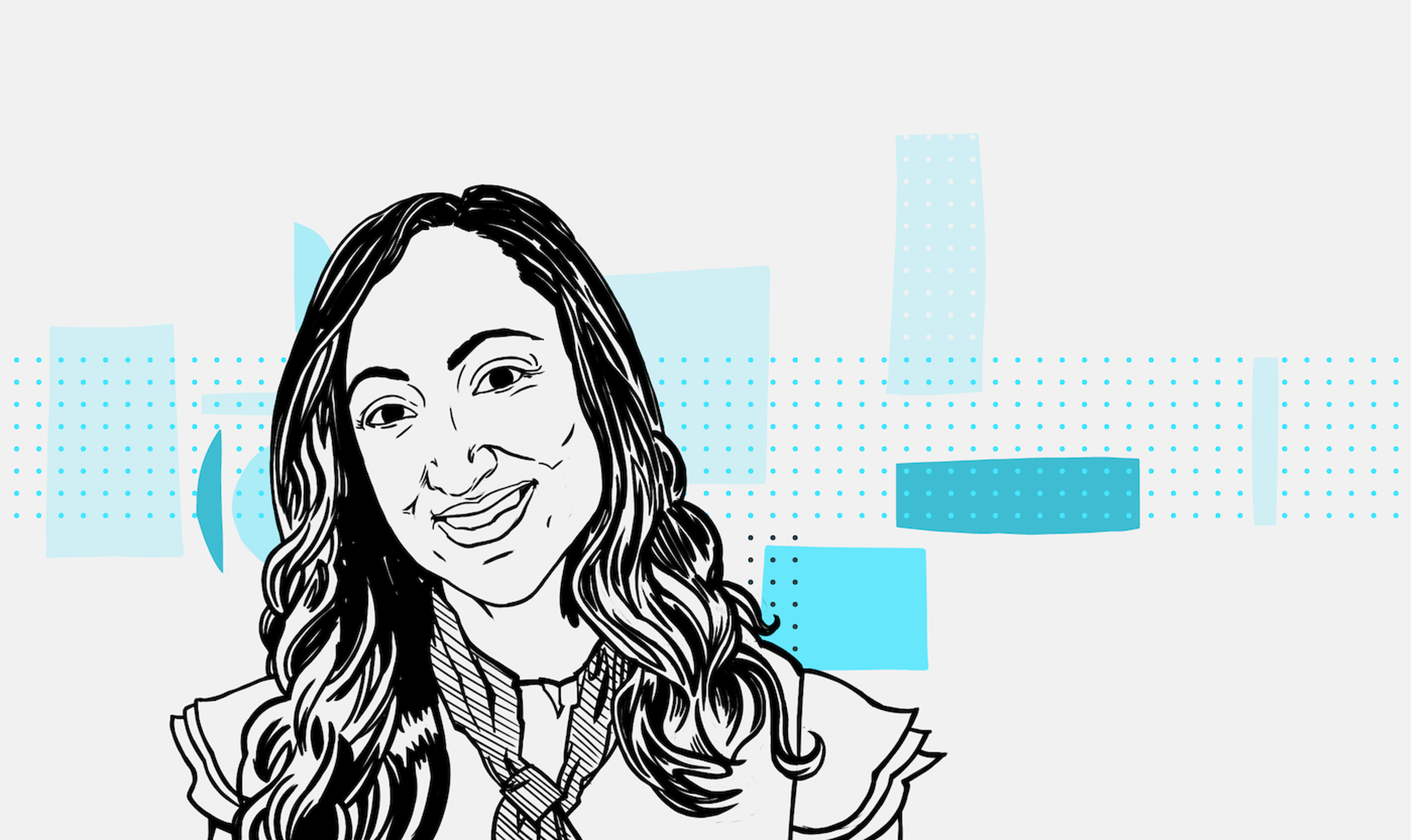
Dr. Fareen Zaver, emergency physician. Illustration: Sam Hester
Dr. Fareen Zaver: How a physician’s life was turned upside down
‘I’m so afraid to be excited.’
Before you read this story...
At The Sprawl, we want to hire another journalist to dig into stories that others won't. Join our community and help us grow our independent newsroom! You can sign up for as little as $5 a month. By pitching in, you're making our journalism sustainable. Sign Me Up!
To close out 2020, we're bringing you 20 stories from an extraordinary year. Doctors. Teachers. Entrepreneurs. Activists. These are the stories of ordinary Albertans who were changed by circumstances beyond their control—and what they did to make their worlds, and ours, a little better.
Dr. Fareen Zaver’s first patient with suspected COVID-19 arrived at the hospital emergency department in an ambulance, struggling to breathe.
Normally, when a patient can’t breathe, health-care workers rush over. COVID-19 turned that natural instinct into a potentially dangerous act.
The patient waited in the ambulance bay while Dr. Zaver, an emergency physician, and her colleagues donned N95 masks, which were reserved for high-risk procedures.
Normally, Dr. Zaver would put patients who request not to be intubated on a BiPAP machine, which delivers pressurized air through a facial mask. But the evidence available at the time suggested that BiPAP could disperse the virus throughout the room, risking exposure to anyone nearby.
Dr. Zaver debated the risks to herself and her colleagues, and to the patient in front of her. Then she kicked everyone from the room except for the respiratory therapist and herself.
We couldn’t just sit there and watch her die.
“We were going to do the thing we were told not to do,” she said. “Because we couldn't just sit there and watch her die, knowing that there was an intervention that we could do.” They started the patient on BiPAP.
At the end of her shift, Dr. Zaver, 35, sat in the parking lot and cried.
For the clinical assistant professor at the University of Calgary, this has been a year of pausing and re-evaluating actions that used to come naturally.
She was supposed to get married in the summer of 2020 in a multi-day ceremony with hundreds of friends and family. She and her fiancé have postponed twice.
“I’m just not excited about planning anything anymore because I’m so afraid to be excited,” she said.
She aches to hug her parents. She visits them weekly but keeps her distance. Her sister is a physician, too, and they worry about exposing their family to the virus.
“What if we’re the ones to bring that to them?” she said.
I feel work fatigue all the time and burnout all the time.
Dr. Zaver, who is working on her master’s degree in medical education, is heavily involved with the Department of Emergency Medicine’s wellness committee for physicians, and is an advocate for gender equity and anti-racism.
Before the pandemic, she used to cram her work shifts into a busy couple of weeks and then travel somewhere for a week to detach. That’s gone now.
“I feel work fatigue all the time and burnout all the time,” she said.
But she’s learned to appreciate spending her free time with the people she’s closest to.
“I hope that making time for the people who really matter doesn’t get lost when life goes back to somewhat normal.”
She has one wish for the year ahead: a vaccine.
Christina Frangou is a Calgary journalist who covers health and social issues. Her reporting has garnered multiple national awards and nominations, including a National Newspaper Award in long feature writing for a story about her experience as a young widow.
Did you appreciate this story? Become a Sprawl member today!
At The Sprawl, we want to hire another journalist to dig into stories that others won't. Join our community and help us grow our independent newsroom! You can sign up for as little as $5 a month. By pitching in, you're making our journalism sustainable. Sign Me Up!




